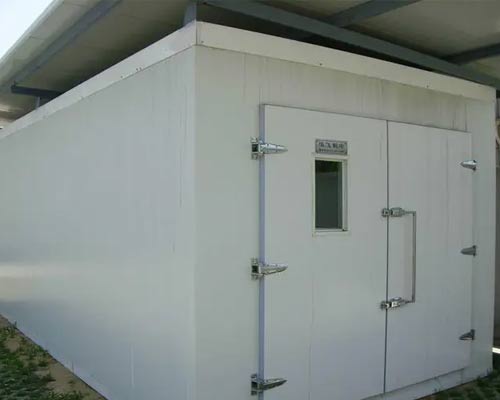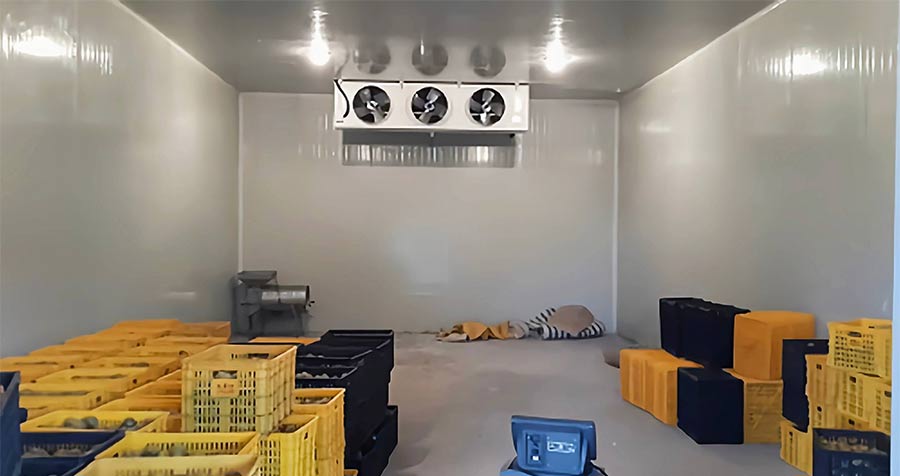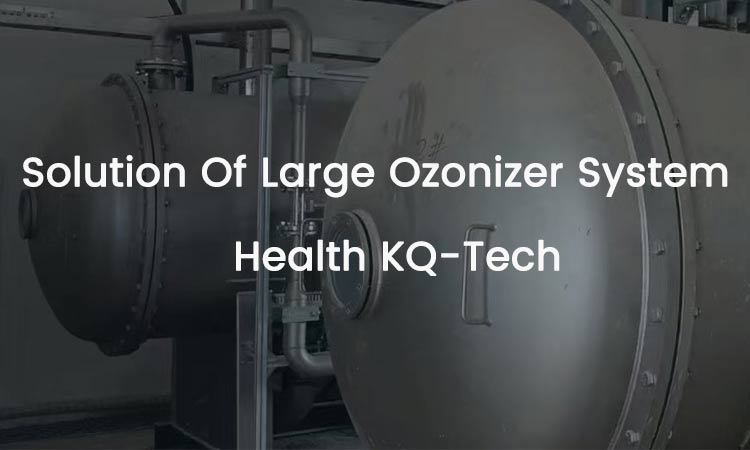Array
(
[id] => 4068
[site_id] => 1
[project_id] => 478
[cate_id] => 792
[thumb] => Array
(
[id] => 3640
[cate_id] => 1
[folder] => res/202306/19/
[name] => 31e12855f0e9c236.jpg
[ext] => jpg
[filename] => res/202306/19/31e12855f0e9c236.jpg
[ico] => res/_cache/_ico/36/3640.jpg
[addtime] => 1687175581
[title] => ozone-generator-used-in-cold-storage
[attr] => Array
(
[width] => 500
[height] => 400
)
[note] =>
[session_id] =>
[user_id] => 0
[download] => 0
[admin_id] => 1
[mime_type] => image/jpeg
[gd] => Array
(
[auto] => res/_cache/auto/36/3640.jpg
[thumb] => res/_cache/thumb/36/3640.jpg
)
)
[content] => The application of ozone generators in cold storage generally has several aspects: one is the sterilization and disinfection of the air in the production workshop, equipment, equipment surfaces and work clothes; the other is the sterilization and purification of production and processing water and high-concentration ozone disinfectant for vegetation; Disinfection, sterilization and deodorization of cold storage; fourth, food preservation, oxidation of metabolism, thereby inhibiting the process of metabolism.
(1) [**]ir sterilization and disinfection in general cold storage production workshops Microbial pollution in production workshops is an extremely important factor affecting product quality. Ozone generators can not only effectively kill them, but also effectively remove workshop odors. The application examples in various food processing enterprises have proved that the use of ozone disinfection can make the air, floor, operating table, utensils and other objects in the production workshop meet the standard of bacteria indicators, and the microorganisms in the air can be reduced by 50%~70%. Bacterial growth was greatly inhibited, and the feeling in some meat and poultry slaughtering workshops was also significantly reduced.

(2) Disinfection of changing rooms and work clothes Most of the bacteria in the production workshop can be brought into the production workshop through the work clothes of the processing personnel. In severe cases, it will lead to large-scale transmission, which should be paid enough attention to. Most food processing enterprises use ultraviolet radiation for disinfection. Due to the natural defects of ultraviolet radiation, the disinfection effect is poor, and ozone gas can penetrate all parts of clothing, so it is an efficient and simple method to use ozone to disinfect work clothes.
Disinfect the work clothes every day, hang dozens of work clothes in a 20m2 closed room, and sprinkle some water on the ground. For example, using a 3g/h ozone generator, the ozone concentration can reach 8~10mg/kg within 3~4 hours of starting up, and the disinfection effect with a killing rate of more than 85% can be achieved.
(3) Sterilization and purification for production Food production requires a large amount of purified water and ozone treatment can fully meet these needs. Ozone kills bacteria, viruses, microorganisms, etc. in water with a higher rate and faster speed. Thoroughly remove pollutants such as organic compounds in water without causing secondary pollution. This has special significance for food processing water.

Usually production water is disinfected with chlorine preparations. [**]s water sources are increasingly polluted by organic chemical products, chlorinated organic compounds such as chloroform, dichloroethane, and carbon tetrachloride will be produced after chlorine preparations are disinfected. These substances are carcinogenic, so EU countries The use of chlorine series long-acting disinfectants has been banned, and my country and other countries will also gradually ban their use. [**]fter ozone disinfection treatment, no secondary pollution compounds are produced, and the killing rate of ozone on bacteria is higher than that of chlorine preparations, and the killing rate is about 30 to 600 times that of chlorine preparations. Especially in pre-cooling disinfection, it overcomes the determination of chlorine residue after sodium hypochlorite disinfection, can kill bacteria efficiently, economically and easily, improves product quality, and reduces production costs.
(4) Disinfection and deodorization of cold storage
The main source of biological pollution in cold storage is mold, etc. They are highly resistant to chemical disinfectants, and survival and freezing under low temperature conditions may cause some bacteria to perish, but some pathogenic bacteria have great resistance to low temperature. Once the temperature rises, these bacteria will "resurrect". Especially in the cooling room and cold storage room, because the temperature is suitable for the growth of thermophilic bacteria, molds and yeasts, a large amount of stored food will be damaged. In this case, the use of ozone will achieve satisfactory results. Tests have proved that using ozone with a concentration of 6-12mg/kg for 3-4 hours of continuous disinfection can kill ungerminated spores including extremely resistant ones. If the warehouse is closed for more than 24 hours after shutdown, the bacteria killing rate can reach about 90%, and the mold killing rate can reach about 80%. [**]fter 48 hours of on-site measurement, although the ozone has been decomposed, the number of microorganisms is still declining. Therefore, it is best to arrange the disinfection of the cold storage about 3 days before the purchase.

Ozone has excellent odor removal performance, and its strong oxidation performance can quickly decompose odor and other organic or inorganic substances. The main components of the odor are amine R3N, sulfur alcohol CH3SH, etc., which can be oxidized and decomposed by ozone.
(5) Food preservation The application of ozone in food preservation can play a role in sterilization, mildew prevention and slowing down metabolism. The ozone produced by the ozone generator can oxidize and decompose the ripening agent—ethylene gas C2H4 produced by the respiration and decomposition of fruits and vegetables. [**]t the same time, it also produces a large number of negative oxygen ions, which can also inhibit the metabolism of fruits and vegetables. The coordinated use of refrigeration, air conditioning, and packaging is more effective. It can improve the fresh-keeping effect and storage period of food.
(6) Sterilization used in food production process The use of new cold storage technology can avoid the adverse effects of traditional product processing technology on product quality, and can improve product quality and reduce production costs. This process is suitable for a continuous production line with a high degree of automation, and everything from ozone water spray sterilization to Hainan cold storage process design needs to be carried out in a clean workshop.
[parent_id] => 0
[module_id] => 114
[title] => The function and advantages of ozone generator used in cold storage
[dateline] => 1687175790
[lastdate] => 1687175790
[sort] => 0
[status] => 1
[hidden] => 0
[hits] => 1805
[tpl] =>
[seo_title] => The function and advantages of ozone generator for cold storage
[seo_keywords] => ozone generator,ozone generator for cold storage
[seo_desc] => The application of ozone generators in cold storage generally has several aspects: one is the sterilization and disinfection of the air in the production workshop, equipment, equipment surfaces and work clothes; the other is the sterilization and purifica
[tag] => Array
(
[0] => Array
(
[id] => 109
[site_id] => 1
[identifier] =>
[title] => commercial water treatment,ozone water treatment,water treatment blog
[url] => https://healthept.com/tag/109
[target] => _self
[hits] => 1743
[alt] => commercial water treatment,ozone water treatment,water treatment blog
[is_global] => 0
[replace_count] => 0
[seo_title] =>
[seo_keywords] =>
[seo_desc] =>
[tpl] =>
[title_id] => c792
[html] => commercial water treatment,ozone water treatment,water treatment blog
)
)
[attr] =>
[replydate] => 0
[user_id] => 0
[identifier] =>
[integral] => 0
[style] =>
[url] => https://healthept.com/4068.html
[_catelist] => Array
(
[792] => Array
(
[id] => 792
[site_id] => 1
[parent_id] => 736
[status] => 1
[title] => Commercial
[taxis] => 5
[tpl_list] =>
[tpl_content] =>
[psize] => 0
[seo_title] => commercial ozone water treatment blog
[seo_keywords] => commercial water treatment,ozone water treatment,water treatment blog
[seo_desc] => KQ Environmental Tech shares useful articles and blogs related to commercial ozone water treatment and environmental ozone treatment. A website blog that provides you with a systematic understanding and free access to relevant resources.
[identifier] => commercial
[tag] => commercial water treatment,ozone water treatment,water treatment blog
[style] =>
[module_id] => 0
[psize_api] => 0
[url] => https://healthept.com/Case/commercial.html
)
)
)
The application of ozone generators in cold storage generally has several aspects: one is the sterilization and disinfection of the air in the production workshop, equipment, equipment surfaces and work clothes; the other is the sterilization and purification of production and processing water and high-concentration ozone disinfectant for vegetation; Disinfection, sterilization and deodorization of cold storage; fourth, food preservation, oxidation of metabolism, thereby inhibiting the process of metabolism.
(1) [**]ir sterilization and disinfection in general cold storage production workshops Microbial pollution in production workshops is an extremely important factor affecting product quality. Ozone generators can not only effectively kill them, but also effectively remove workshop odors. The application examples in various food processing enterprises have proved that the use of ozone disinfection can make the air, floor, operating table, utensils and other objects in the production workshop meet the standard of bacteria indicators, and the microorganisms in the air can be reduced by 50%~70%. Bacterial growth was greatly inhibited, and the feeling in some meat and poultry slaughtering workshops was also significantly reduced.

(2) Disinfection of changing rooms and work clothes Most of the bacteria in the production workshop can be brought into the production workshop through the work clothes of the processing personnel. In severe cases, it will lead to large-scale transmission, which should be paid enough attention to. Most food processing enterprises use ultraviolet radiation for disinfection. Due to the natural defects of ultraviolet radiation, the disinfection effect is poor, and ozone gas can penetrate all parts of clothing, so it is an efficient and simple method to use ozone to disinfect work clothes.
Disinfect the work clothes every day, hang dozens of work clothes in a 20m2 closed room, and sprinkle some water on the ground. For example, using a 3g/h ozone generator, the ozone concentration can reach 8~10mg/kg within 3~4 hours of starting up, and the disinfection effect with a killing rate of more than 85% can be achieved.
(3) Sterilization and purification for production Food production requires a large amount of purified water and ozone treatment can fully meet these needs. Ozone kills bacteria, viruses, microorganisms, etc. in water with a higher rate and faster speed. Thoroughly remove pollutants such as organic compounds in water without causing secondary pollution. This has special significance for food processing water.

Usually production water is disinfected with chlorine preparations. [**]s water sources are increasingly polluted by organic chemical products, chlorinated organic compounds such as chloroform, dichloroethane, and carbon tetrachloride will be produced after chlorine preparations are disinfected. These substances are carcinogenic, so EU countries The use of chlorine series long-acting disinfectants has been banned, and my country and other countries will also gradually ban their use. [**]fter ozone disinfection treatment, no secondary pollution compounds are produced, and the killing rate of ozone on bacteria is higher than that of chlorine preparations, and the killing rate is about 30 to 600 times that of chlorine preparations. Especially in pre-cooling disinfection, it overcomes the determination of chlorine residue after sodium hypochlorite disinfection, can kill bacteria efficiently, economically and easily, improves product quality, and reduces production costs.
(4) Disinfection and deodorization of cold storage
The main source of biological pollution in cold storage is mold, etc. They are highly resistant to chemical disinfectants, and survival and freezing under low temperature conditions may cause some bacteria to perish, but some pathogenic bacteria have great resistance to low temperature. Once the temperature rises, these bacteria will "resurrect". Especially in the cooling room and cold storage room, because the temperature is suitable for the growth of thermophilic bacteria, molds and yeasts, a large amount of stored food will be damaged. In this case, the use of ozone will achieve satisfactory results. Tests have proved that using ozone with a concentration of 6-12mg/kg for 3-4 hours of continuous disinfection can kill ungerminated spores including extremely resistant ones. If the warehouse is closed for more than 24 hours after shutdown, the bacteria killing rate can reach about 90%, and the mold killing rate can reach about 80%. [**]fter 48 hours of on-site measurement, although the ozone has been decomposed, the number of microorganisms is still declining. Therefore, it is best to arrange the disinfection of the cold storage about 3 days before the purchase.

Ozone has excellent odor removal performance, and its strong oxidation performance can quickly decompose odor and other organic or inorganic substances. The main components of the odor are amine R3N, sulfur alcohol CH3SH, etc., which can be oxidized and decomposed by ozone.
(5) Food preservation The application of ozone in food preservation can play a role in sterilization, mildew prevention and slowing down metabolism. The ozone produced by the ozone generator can oxidize and decompose the ripening agent—ethylene gas C2H4 produced by the respiration and decomposition of fruits and vegetables. [**]t the same time, it also produces a large number of negative oxygen ions, which can also inhibit the metabolism of fruits and vegetables. The coordinated use of refrigeration, air conditioning, and packaging is more effective. It can improve the fresh-keeping effect and storage period of food.
(6) Sterilization used in food production process The use of new cold storage technology can avoid the adverse effects of traditional product processing technology on product quality, and can improve product quality and reduce production costs. This process is suitable for a continuous production line with a high degree of automation, and everything from ozone water spray sterilization to Hainan cold storage process design needs to be carried out in a clean workshop.



